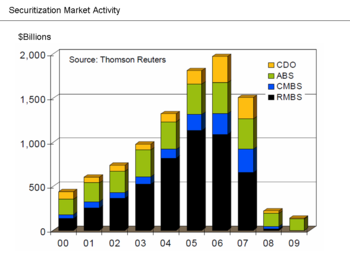Getting a reverse home mortgage is a huge choice, because you may not be able to leave this loan without offering your home to settle the financial obligation. You likewise need to thoroughly consider your options to prevent consuming all the equity you have developed up in your house.
Reverse home mortgages normally are not used for vacations or other "fun" things. The reality is that most borrowers use their loans for immediate or pressing monetary needs, such as paying off their existing home mortgage or other debts. Or they may consider these loans to supplement their regular monthly income, so they can pay for to continue living in their own home longer. Adjustables have five payment options: Set regular monthly payments so long as you or your qualified spouse remain in the home Set regular monthly payments for a set period Undefined payments when you require them, until you've exhausted your funds A credit line and set monthly payments for as long as you or your qualified spouse reside in the home A line of credit and set regular monthly payments for a set duration of your picking To make an application for a reverse mortgage, you must fulfill the following FHA requirements: You're 62 or older You and/or a qualified partner who should be named as such on the loan even if he or she is not a co-borrower reside in the house as your main home You have no overdue federal financial obligations You own your house outright or Browse around this site have a substantial amount of equity in it You go to the compulsory counseling session with a home equity conversion home loans (HECM) counselor authorized by the Department of Housing and Urban Advancement Your house satisfies all FHA home requirements and flood requirements You continue paying all home taxes, house owners insurance coverage and other home maintenance fees as long as you live in the house Prior to releasing a reverse home mortgage, a lender will inspect your credit report, https://rivercountry.newschannelnebraska.com/story/43143561/wesley-financial-group-responds-to-legitimacy-accusations confirm your regular monthly earnings versus your regular monthly monetary responsibilities and order an appraisal on your home.
Almost all reverse mortgages are provided as house equity conversion mortgages (HECMs), which are insured by the Federal Housing Administration. HECMs include strict borrowing guidelines and a loan limit. If you think a reverse home mortgage might be right for you, find an HECM counselor or call 800-569-4287 toll-free to get more information about this financing option.
A reverse mortgage allows house owners, especially those who are of retirement age, to borrow against the equity in their homes. One advantage of a reverse home mortgage is that lenders don't generally have minimum income or credit report requirements, which can assist homeowners aiming to cover living expenditures. But a reverse mortgage includes numerous downsides, such as upfront and continuous costs, a variable interest rate, an ever-rising loan balance and a reduction in home equity.

As its name suggests, a reverse home mortgage is the opposite of a standard mortgage loan. With a reverse mortgage, you don't borrow money to purchase a house; rather, you use the equity of your house to secure a loan. A reverse home loan is suggested for homeowners who have actually paid off their mortgage or who have actually collected a lot of house equity.
One of the benefits of a reverse home loan is that loan providers typically do not enforce earnings or credit requirements. Proceeds from a reverse home loan are generally tax-free, and not a cent of the loan requires to be paid back if the debtor remains in the house, pays residential or commercial property taxes and homeowners insurance, and covers upkeep expenses.

The Best Guide To What Is The Current Apr For Mortgages
Those circumstances set off the requirement for you, your spouse or your estate to pay back the loan. Three kinds of reverse home mortgages are available: Single-purpose reverse home loan: These loans, offered from government agencies and not-for-profit groups, are created for simply one function laid out by the lending institution. For instance, someone might utilize profits from a single-purpose reverse home mortgage to tackle a house improvement task or pay residential or commercial property taxes.
Exclusive reverse mortgage: Proprietary reverse mortgages, offered from private loan providers, use more flexibility than single-purpose reverse mortgages. Unlike single-purpose reverse mortgages, exclusive reverse mortgages generally do not included restrictions on how you can invest the profits. This choice can be especially attractive to owners whose homes carry high values and who desire to obtain a significant sum of money - what is the debt to income ratio for conventional mortgages.
An HECM, guaranteed by the Federal Real Estate Administration (FHA), is the most typical sort of reverse home loan. Since 2020, the HECM borrowing limitation was $765,600. Although earnings from an HECM can be used for any function, some homeowners might not certify due to specific restrictions. These loans are available just to property owners who are at least 62 years of ages.
Those consist of:: Similar to a traditional home loan, a lender normally charges numerous charges when you secure a reverse home loan. Those can include a home mortgage insurance coverage premium, an origination charge, a maintenance cost and third-party fees. For an HCEM, the preliminary home mortgage insurance coverage premium is 2% of the loan amount; on top of that, you'll pay an annual home mortgage premium of 0.
You'll likewise pay an origination charge of $2,500 or 2% of the very first $200,000 of your house worth (whichever is greater), plus 1% of the amount going beyond $200,000; origination fees can not go beyond $6,000.: A lot of reverse home loans have variable rates of interest, implying the rate of interest that figures out just how much is contributed to your loan balance every month changes throughout the life of the loan.: Interest paid on a reverse home mortgage can't be deducted on your annual tax return till the loan is paid off.: A reverse home mortgage can siphon equity from your home, resulting in a lower property value for you and your heirs.: If your home isn't in excellent shape, you might need to make repair work before you can receive a reverse mortgage.: Aside from when a homeowner dies or leaves, the reverse mortgage might need to be paid back sooner than anticipated if the owner stops working to pay real estate tax or property owners insurance, or if the owner isn't keeping up with home maintenance.
In addition to its drawbacks, there are 3 examples of when a reverse home mortgage may be totally out of the concern: You wish to move fairly quickly. Timing is essential when it concerns securing a reverse home loan. If you're aiming https://panhandle.newschannelnebraska.com/story/43143561/wesley-financial-group-responds-to-legitimacy-accusations to move in the next couple of years, it might not be a good idea to saddle yourself with a reverse mortgage.